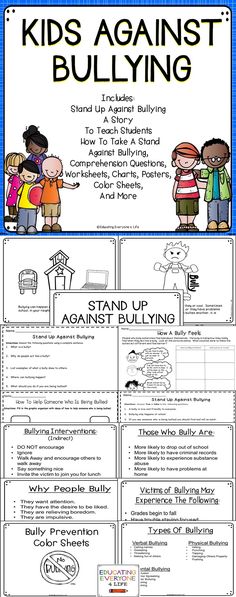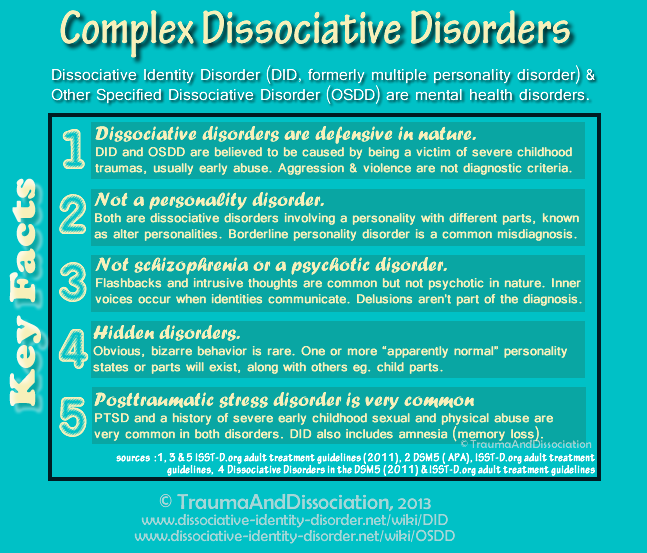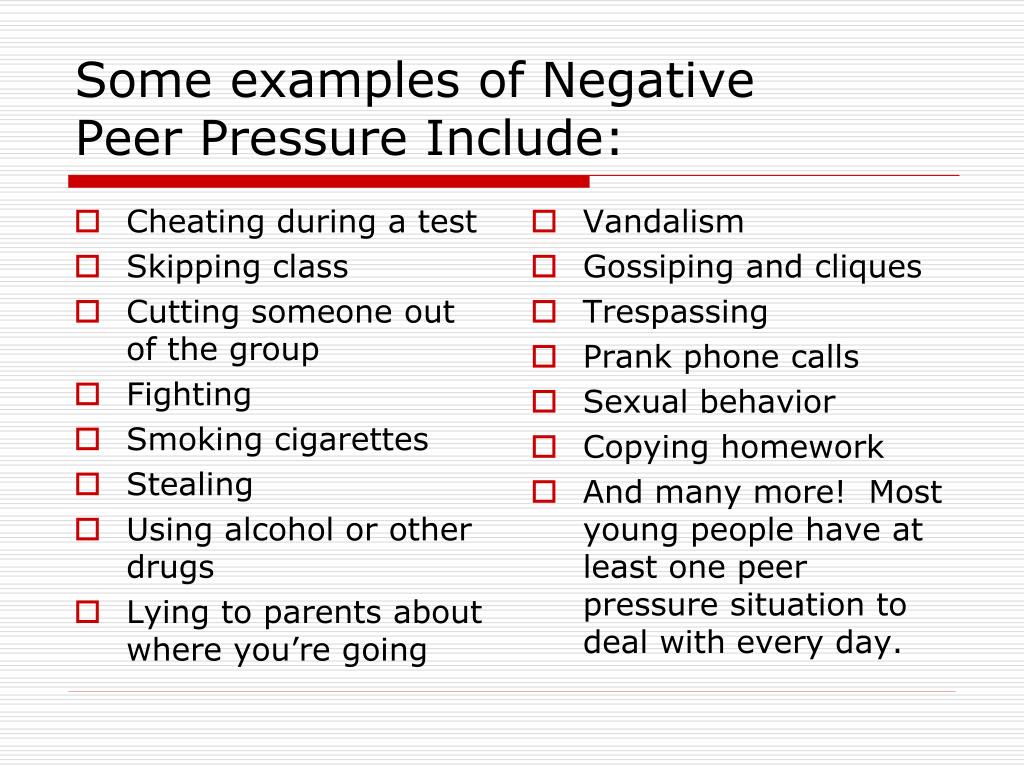Dealing with boredom
6 things you can do to cope with boredom at a time of social distancing
More and more of us are staying home in an attempt to slow down the spreading coronavirus. But being stuck at home can lead to boredom.
Boredom is a signal that we’re not meaningfully engaged with the world. It tells us to stop what we’re doing, and do it better – or to do something else.
But, as a social psychologist who studies boredom, I know that people don’t always make the best choices when bored. So if you’re stuck at home, dutifully practicing your social distancing, how do you keep boredom away?
About boredom
We can feel bored even with jobs and activities that appear to be meaningful. For example, researchers have found anesthesiologists and air traffic controllers find themselves bored on the job.
What this research reveals is that just because something is objectively meaningful doesn’t mean it feels that way to us all the time. And even meaningful work can be boring if the person performing it finds it too hard or too easy. Once that happens, individuals might struggle to stay focused.
Reducing boredom requires that individuals solve the problems that produced it – not having sufficient activities that are both meaningful and optimally challenging.
However, sometimes people turn to activities that make them feel better in the moment, but that don’t provide long-term meaning or challenge. For instance, studies have shown that people are willing to self-administer electric shocks when bored.
Other behaviors linked to greater susceptibility to boredom include increased alcohol intake and marijuana use. Boredom is also tied to unhealthy snacking and online pornography.
While these may feel good in the moment, they provide only temporary relief from boredom. To prevent boredom and keep it away, we need to find solutions at home that provide lasting meaning and challenge.
1. Remind yourself why you’re doing this
People generally prefer doing something to doing nothing. As staying home is the most effective way to prevent the further transmission of the coronavirus, it is meaningful to socially isolate. However, it may not always feel that way.
However, it may not always feel that way.
Like all emotions, boredom is about whatever you’re thinking at the moment. That means staying at home will only feel meaningful when we’re actively thinking about the greater good it does. For instance, in studies, when students were prompted to reflect on why their schoolwork mattered to them personally, researchers found that their interest in learning increased.
In other words, reframing our activity changes how we feel about it.
Doing meditation at home while self-isolating. Justin Paget/Digital Vision via Getty ImagesCreating simple reminders, such as a note on the fridge, or a morning meditation, can help us keep the big picture in view: Staying home is a sacrifice we’re actively making for the good of others.
2. Find a rhythm
Routines structure our days, and provide a sense of coherence that bolsters our meaning in life. People’s lives feel more meaningful in moments when they’re engaged in daily routines.
We lose those routines when we give up going to the office, or when we are laid off. Even retirees or stay-at-home parents are disrupted by closures to cities, restaurants and schools. This loss of routine can foster feelings of boredom.
By creating new routines, people can restore a sense of meaning that buffers them from boredom.
3. Go with the flow
Figuring out what to do when faced by long days unstructured by work or school can be hard. A recent study of people in quarantine in Italy found that boredom was the second most common issue, after loss of freedom.
One thing that makes such situations hard is that it can be tricky to find activities that are just challenging enough to keep one occupied, without being too demanding. This situation can leave people bored and frustrated.
It helps to keep in mind that what counts as too challenging, or not challenging enough, will shift throughout the day. Don’t force yourself to keep at it if you need a break.
4. Try something new
Boredom urges many of us towards the novel. Embrace that urge, judiciously. If you have the energy, try a new recipe, experiment with home repairs, learn a new dance on TikTok.
Doing new things not only relieves boredom, it helps acquire new skills and knowledge that may relieve boredom in the long run. For instance, we feel a surge of interest when we read an interesting novel or go through complex experiences, but only if we have the capacity to understand them.
Evidence shows that embracing new experiences, can help us lead not only a happy or meaningful life, but a psychologically richer one.
5. Make room for guilty pleasures
It’s okay to binge on television, if that’s all you can handle at the moment.
We sometimes paint ourselves into a box where our most meaningful hobbies are also mentally taxing or effortful. For instance, digging into a classic Russian novel may be meaningful, but it doesn’t necessarily come easily.
Similarly, well-intentioned suggestions for how to cope at home, such as hosting a virtual wine-and-design night, may be simply too exhausting to be pleasurable at a time when many of us are already struggling.
Give yourself permission to enjoy your guilty pleasures. If need be, reframe those moments as much-needed mental refreshment, nourishing and recharging you for a later date.
6. Connect with others
Finding easy meaningful alternatives – bite-sized options that don’t take much effort, but that we find deeply rewarding – can be a challenge.
[Expertise in your inbox. Sign up for The Conversation’s newsletter and get a digest of academic takes on today’s news, every day.]
Luckily one good option is open to us all: connecting with others, whether virtually or for those lucky enough not to be quarantined alone – in-person.
Talk with friends while working from home. Julie Jammot/AFP via Getty ImagesLooking at old photos, or reminiscing with a friend, are simple meaningful actions most of us can take even when we’re not feeling our best. One does not need a reason to call up a friend – our best socializing is the kind that happens casually, in the unstructured time between scheduled activities.
One does not need a reason to call up a friend – our best socializing is the kind that happens casually, in the unstructured time between scheduled activities.
Create room for that virtually as well: Next time you’re pouring a glass of wine or watering the plants, call up a friend while you do it. Make dinner together. We don’t have to be bored, when we’re all in this together.
Boredom itself is neither bad nor good, only our choices about how to counter it make it so.
Boredom: Causes and Treatment
Though boredom is a feeling that most people experience from time to time, there are many ways to address and prevent it.
What is boredom?
Boredom is a common feeling. Feeling unsatisfied by an activity, or uninterested in it, can lead to boredom.
Boredom may occur when you feel energetic but have nowhere to direct your energy. It may also occur when you have difficulty focusing on a task.
Boredom is a common complaint among children and adolescents. In some cases, they may also complain of boredom when they’re uncomfortable dealing with their thoughts or feelings.
In some cases, they may also complain of boredom when they’re uncomfortable dealing with their thoughts or feelings.
Boredom is marked by an empty feeling, as well as a sense of frustration with that emptiness.
When you’re bored, you may have a limited attention span and lack of interest in what’s happening around you. You may also feel apathetic, fatigued, nervous, or jittery.
In some cases, boredom can make it more challenging to focus and cause you to feel stressed or distracted.
People identify and experience boredom differently. In some cases, boredom may occur due to:
- inadequate rest or nutrition
- low levels of mental stimulation
- lack of choice or control over your daily activities
- lack of diversified recreational interests
- poor perception of time
You or child may become bored while engaged in an activity due to:
- loss of interest
- confusing instructions
- fear of making a mistake
- repetition of the activity for too much time
- feeling unable to try new approaches to the activity
In some cases, chronic boredom can also be a sign of certain mental health conditions, including depression.
While there is no specific medical treatment for boredom, there are plenty of solutions if you’re experiencing boredom.
For example, you may want to consider trying some new hobbies or other new diversional activities.
Joining a club can be a good way to thwart your boredom. Reading clubs, hobby groups, or exercise groups are all great places to start. Participating in a community group that organizes activities or outings is another great options.
You can also help your child cope with feelings of boredom when they arise.
When they complain of boredom, encourage them to communicate and address their feelings without questioning the validity. Take time to help them identify the causes of their boredom and find creative solutions.
For best results:
- Don’t question whether or not your child “should” be bored.
- Avoid responding to your child’s complaints of boredom with impatience or anxiety.
- Ask open-ended questions to stimulate their creativity in finding interesting solutions for alleviating boredom.

- Recognize that your child’s complaint of boredom may be their way of trying to engage your attention or asking to participate in an activity.
- Help your child identify any other emotional issues or feelings that they may be identifying as boredom.
- Help your child find an engaging activity or one you can participate in together.
If boredom is part of larger issue, like depression, you should seek treatment from a mental health professional. Talking to a doctor about your feelings will help them understand your needs and identify the best course of treatment for you.
Here are some simple tips you can try to prevent boredom:
- Keep a record of the circumstances in which you or your child becomes bored. Note the time of day, place, and activities preceding the boredom, so you can avoid those circumstances or prepare for possible boredom in the future.
- Make routine tasks more interesting by adding a unique element. For example, start timing tasks to see how fast you can do them.

- Combine multiple repetitive tasks so they can be done together.
- Break larger tasks into smaller ones and plan breaks or rewards at key milestones.
- Create a list of activities to try when boredom strikes. If your child is the one feeling bored, try creating this list together.
- Establish a special area where you or your child can store activities reserved specifically for battling boredom.
- Be prepared to take time out to work with your child to set up an activity when they’re bored.
Boredom is common in all ages and some boredom is unavoidable.
However, learning how to deal with boredom at a young age will develop problem-solving skills that can be beneficial in the future.
Why do I get bored easily?
Feeling bored easily can be caused by many different factors, including decreased mental stimulation or a lack of control over activities in your daily life.
Interestingly, research suggests that some people are prone to experiencing boredom more frequently, which may also be linked to decreased attention span, self-control, and self-esteem.
What emotional or mental health problems can be related to boredom?
For some people, boredom may be used as a way to disconnect from negative feelings or experiences that can be overwhelming and difficult to deal with.
Additionally, chronic boredom can be a sign of depression. If you experience other symptoms of depression like decreased energy levels, unintentional weight loss, or sleep disturbances, you should consider talking to a healthcare professional to determine the cause and best course of treatment for you.
What are the benefits of boredom?
In some cases, boredom may actually be beneficial.
In fact, feeling bored can help push you to try new activities or explore other hobbies and interests. It can also promote self-awareness and problem-solving by encouraging you to identify the cause of your boredom so that you can address it.
Fighting boredom
Life is a struggle. And first of all with evil. One type of evil is boredom. She is depressing as a fire extinguisher. Dullness and gloom are her image. There is no attraction in boredom. But people live in it. And most of them are those who live not in joy, but in boredom. But it is not enough to know about such human oddities. It is important for us to reveal the origins of this disappointing phenomenon. In order to successfully move towards the intended goal of unraveling the reasons for the attractiveness and popularity of boredom in humanity, it may be useful to think about the feelings experienced by this phenomenon.
She is depressing as a fire extinguisher. Dullness and gloom are her image. There is no attraction in boredom. But people live in it. And most of them are those who live not in joy, but in boredom. But it is not enough to know about such human oddities. It is important for us to reveal the origins of this disappointing phenomenon. In order to successfully move towards the intended goal of unraveling the reasons for the attractiveness and popularity of boredom in humanity, it may be useful to think about the feelings experienced by this phenomenon.
First, boredom slows down all the processes associated with the movement of energy in us. Our consciousness, as it were, stops and slides abstractly over the pictures or fragments of pictures taken from our depths in a random order. This is a kind of wandering through the back streets of memory, but just wandering, because it is aimless. There is no movement of creation and advancement. There is a sense of inner emptiness. The purpose and meaning of life are illusory or absent at all and do not call to the future, which alone brings joy. But if there is no magnet of joy, then the opposite magnet operates according to the law of polarity. Its task is to extinguish the linking fire and light, as a creative, fastening and unifying principle. There is a kind of spreading and dissolution. But if there is no constructive and creative movement, then the movement of corruption, which arises with boredom, causes an unusual feeling of weariness from life, the doom and frailty of the world, which fits into the scheme of the thirst for love for self-pity. And here we come close to the source of boredom. It is the desire for self-pity. The concentration of energies on oneself creates a temporary illusion and self-deception of love. The grimaces of an unhappy life evoke pity and sympathy from others, and therefore the bored person is saturated with energy from them, which is especially necessary when it is lost. A bored person sometimes receives even more care, sympathy and support than socially useful workers and builders.
But if there is no magnet of joy, then the opposite magnet operates according to the law of polarity. Its task is to extinguish the linking fire and light, as a creative, fastening and unifying principle. There is a kind of spreading and dissolution. But if there is no constructive and creative movement, then the movement of corruption, which arises with boredom, causes an unusual feeling of weariness from life, the doom and frailty of the world, which fits into the scheme of the thirst for love for self-pity. And here we come close to the source of boredom. It is the desire for self-pity. The concentration of energies on oneself creates a temporary illusion and self-deception of love. The grimaces of an unhappy life evoke pity and sympathy from others, and therefore the bored person is saturated with energy from them, which is especially necessary when it is lost. A bored person sometimes receives even more care, sympathy and support than socially useful workers and builders.
The second reason is the images of literary heroes, misinterpreted by literary critics and teachers. The image of the bored Pechorin, who despises the outgoing, decaying society, in inexperienced minds turns into an image presented as expressing the attractiveness of reflections on the worthlessness, disorder and meaninglessness of life itself. And here, ultimately, the calculation is also on sympathy.
The image of the bored Pechorin, who despises the outgoing, decaying society, in inexperienced minds turns into an image presented as expressing the attractiveness of reflections on the worthlessness, disorder and meaninglessness of life itself. And here, ultimately, the calculation is also on sympathy.
Of course, when sympathizing, bored people are saturated with the energies of sympathizers, but these energies still do not make up for her losses from boredom. The magnet of boredom is one of the strongest in terms of decay and devastation, and therefore there is evil. No, let's not praise and encourage boredom. Let us invoke precisely joy, the joy of unceasing creative labor!
Oleg Cheglakov, 2007
From the book. Nudity or mystery , St. Petersburg, 2009
© The site contains original materials. Please include a link to the site when using them.
Fighting boredom or how to make the morning good
Boredom is a very unpleasant state of mind. It can ruin everything from just a bad day to business negotiations.
It can ruin everything from just a bad day to business negotiations.
What to do if you are bored? Did boredom overcome you during the monotonous work that cannot be avoided, waiting in lines, standing in traffic jams, etc.?
In fact, the fight against boredom is solvable. The very first question you should ask yourself is - Am I a boring person?! That is, if you are bored, maybe it's not at all in external circumstances? We know perfectly well that everything depends on our perception of the situation. If we think it will be boring, then it will be. The main thing here is the inner mood. Although, there are a few tips that can be very helpful. The main thing is to remember them in time.
1. Meditation. Try adding the word "meditation" to the adjective "boring". For example, you stand in line at a savings bank, for example, or at a pharmacy. The line moves slowly and the only thing left for you to do is just wait quietly. The key word here is “calmly”, because in addition to boredom in such queues, an even more dangerous state is usually added - irritation. You can't change the queue speed, can you? So just relax and think about something nice. In extreme cases, you can reassure yourself that the other queue is moving even more slowly.
You can't change the queue speed, can you? So just relax and think about something nice. In extreme cases, you can reassure yourself that the other queue is moving even more slowly.
2. Dig deeper. If you have a rather boring job that is part of something more interesting, try digging deeper. The same goes for memorizing a boring topic before a test or exam. You got a report on Kant or Hegel, try to find additional information, study more. Tested on our own experience (Erich Fromm's "To Have or Be" at 18 does not seem so interesting) - if you manage to find something interesting, it is addictive and the report seems to be not so boring anymore. The same goes for simple tabulation and analysis of numbers while compiling a report - if you look closely, you can see people in them or the growth of the orange market (depending on what you analyze).
3. Periodically distract yourself with something more pleasant. You are doing routine work, occasionally being distracted by viewing abstract interesting articles or just chatting with a colleague. Stuck in a traffic jam or waiting for a bus at a bus stop - view photos of children or friends in your phone.
Stuck in a traffic jam or waiting for a bus at a bus stop - view photos of children or friends in your phone.
4. Watch. Try to take a closer look at the people around you in the queue, in general to the world around you - what facial expressions people have, what they are wearing. Listen to the sounds, open your eyes.
5. Carry something to read or listen to. Of course, everything listed above and related to waiting in lines, traveling in transport or waiting at a bus stop can be crossed out if you have the opportunity to listen to interesting podcasts, audio books or read from various electronic devices. In this case, you are not just not bored, you replenish your knowledge base or enjoy reading / listening to an art book.
And finally. If your child drives you crazy with constant “why/why/when” questions, repeat to yourself “he is only three years old, he will grow up and this will pass.” Ten times exactly works. And it’s also worth reminding yourself that he is like this right now and all these moments are unique, as, indeed, all life in general.














